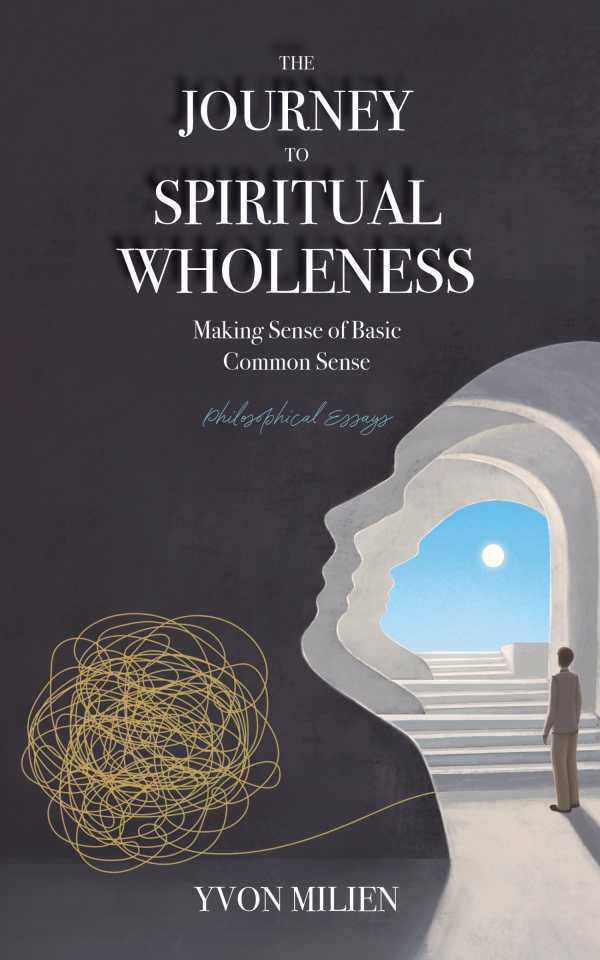The Journey to Spiritual Wholeness
Making Sense of Basic Common Sense
Virtuous living pulls people toward enlightenment, according to the essays of the piquing collection The Journey to Spiritual Wholeness.
Yvon Milien’s philosophical essay collection The Journey to Spiritual Wholeness argues for a return to common sense.
Divided into three parts, the essays navigate various impediments to transcendent ways of living. The first section investigates the concept of Monad, or deity, across religions, couching it as divinity from which humans come and to which they are destined to return. The second section focuses on dualities—between men and women, blindness and truth, impatience and time, and power and ambition. Service and virtues, practices in line with humanity’s fate, are the topic of the last section.
Collectively arguing for people to return to the Monad, a commonsense destination, the book makes use of the Bible, other sacred texts, the works of Shakespeare, and British and American literature from the late nineteenth to the early twentieth centuries to support its points. It highlights characters who suffered the consequences of forgoing the search for the divine, or who did not reach transcendence, and juxtaposes their fates to those of characters and historical figures who overcame social failings to achieve enlightenment, including the Buddha, Mahatma Gandhi, and Martin Luther King Jr. Figures from the latter group are held up as examples of the virtues the book extols. However, the positive examples repeat across several chapters, stalling forward momentum.
While virtues are cited throughout the book in hypothetical scenarios, the book’s articulations of what to avoid are quite murky in comparison. Institutions are treated as the main source of diversion from the narrow way, but these are unnamed or kept vague. Governments, media, entertainment, and cell phones are mentioned as distractions, but the specific natures of the dangers thereof are underinterrogated.
Indeed, rhetorical questions guide the book’s arguments throughout, and counterarguments are not sufficiently engaged. As such, the book is less than convincing when it comes to topics like gender roles, which it takes for granted, or when it comes to nostalgia for the past. Previous eras are held up as better than the present, though the book’s examples from the past show people dealing with the same distractions of ambition, greed, and impatience.
The book’s persuasiveness is also limited by its sense of fatedness: It refers to “chosen ones” on the correct path and to those who choose not to take it, leaving little room for growth. Further, although joy and virtue are promised in the end times, the hardship and backlash that chosen ones can expect from a culture said to be dominated by unchosen people is uninviting. In addition, the book’s ultimate vision of Monad’s promise for humanity, which is characterized by justice, faith, and hope, is too abstract to be fully compelling.
A musing essay collection, The Journey to Spiritual Wholeness uses literature and historical and spiritual figures to defend a rigid vision of moral existence.
Reviewed by
Mari Carlson
Disclosure: This article is not an endorsement, but a review. The publisher of this book provided free copies of the book and paid a small fee to have their book reviewed by a professional reviewer. Foreword Reviews and Clarion Reviews make no guarantee that the publisher will receive a positive review. Foreword Magazine, Inc. is disclosing this in accordance with the Federal Trade Commission’s 16 CFR, Part 255.

